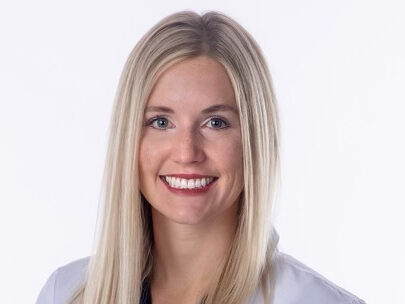The accidental destruction of frozen embryos at an Alabama fertility clinic led to an Alabama Supreme Court ruling on Feb. 16, declaring that embryos conceived through IVF are children. Following the ruling, several of the state’s IVF clinics paused their services, igniting national discourse around related medical, ethical, and legal issues. As an advocate for women’s health and reproductive autonomy, Dr. Sara Fiene, an OB-GYN in Utah, spoke to The Click about the ruling. She discussed the ramifications of the decision and what it means for reproductive rights, medical ethics, and individual autonomy.
Editor’s note: On March 6, After this interview was conducted, Alabama Gov. Kay Ivey (R) signed a law on March 6 protecting IVF providers from legal liability after the embryo court ruling, according to CBS. This interview has been edited for length and clarity.
The Click: As an OB-GYN, what are your thoughts on the Alabama Supreme Court’s ruling that frozen embryos are considered human beings?
Fiene: I don’t believe that embryos are children. It’s a very slippery slope that begs the question, what do you consider to be a child? Is it someone or something that has the capability or potential to live and breathe on its own without use of, let’s say, an incubator or a respirator in the ICU or a freezer in an IVF laboratory? If you’re going back and saying that an embryo or even a zygote, just a collection of cells that obviously can’t live outside of the human body, then I would think that usually the argument is that there is potential for human life. You can draw that back a little bit more and say, okay, then what’s keeping you from saying an egg or a sperm is a child? It doesn’t have its other mate with it yet, but it also has potential. That’s a very slippery slope.
How does the halt or pause in treatment due to legal uncertainties impact women in Alabama whose IVF treatments are being paused? How does this affect their emotional well-being, financial investment, and prospects of achieving a successful pregnancy?
Altering the process is a huge thing to do and the women impacted can’t just continue their cycles and go to a different clinic and pick up where they left off. It likely will halt where they’re at and they might not even be able to pick up for months or a year or whatever, which can be devastating.
The drugs to be able to stimulate a woman’s egg production are very expensive too. So I can imagine that there’s a lot of wasted drugs as well. It’s all injectable drugs and obviously not only IVF alone, but everything that these women have put up with to decide to go through with IVF is super emotional.
I can imagine that it would probably push a lot of people over the edge to decide that maybe it’s not God’s plan for them to go through with it. Whatever the reason may be, I would be very, very disheartened if I was a woman experiencing this.
What personal concerns do you have as an OB-GYN in this current climate?
As a physician, it’s really tough to read that, some REI or infertility clinics within the state just shut down things because they’re afraid of the legal implications. It’s crazy to think that you can do the same job Monday and Tuesday, but Monday it was legal and Tuesday you can be [charged] with murder of a child for doing the same thing you have done your entire professional life. And that sort of uncertainty, it’s really tough on physicians and everyone involved. It can easily lead to burnout. It’s also a really difficult place to be in as a physician when, on one hand, you know what your professional medical society recommends you do for treatment (ACOG or ASRM) and it is at odds with what the state dictates you can or cannot do based on new laws. It is a unique situation and I feel that is exactly what these REI providers are facing in Alabama right now.


